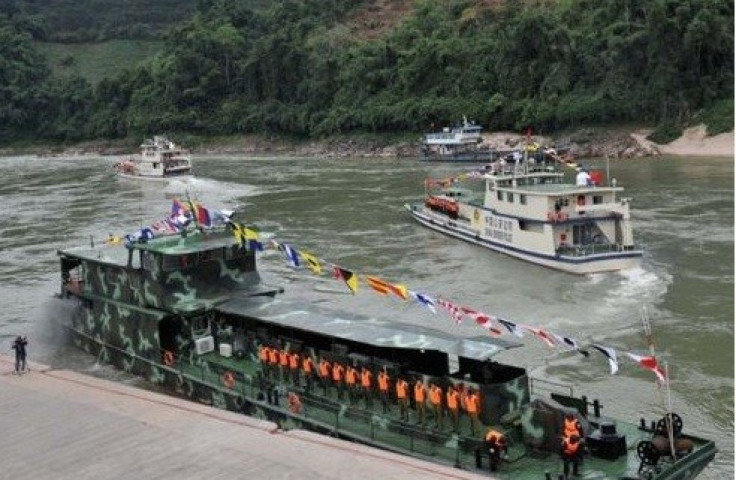Chinese Election Monitors in Myanmar Stir Upset at Home

China sent election monitors to check on Myanmar's parliamentary elections this weekend. The irony of a country without free democratic elections monitoring ballots has not been lost on the Chinese, who read about it in newspapers including the Global Times, Beijing News (Xinjing Bao) and Guangzhou Daily.
The news that China had been involved in election monitoring brought indignation and surprise from commenters on Chinese news and micro-blogging sites. Posts focused on the fact that China had sent monitors to a country now opening to greater electoral freedoms.
Myanmar had invited representatives from the U.N., the Association of South East Asian Nations Secretariat, Asean member states, and the embassies of China, India, the U.S., Canada, South Korea, Australia, Japan, Russia, and EU nations to observe the April 1 parliamentary special elections.
Laughable, wrote numerous netizens of Beijing's involvement.
We don't even have elections, going to monitor someone else's election, that's ridiculous! was another comment.
Some questioned the point of monitoring: Why not monitor ourselves? Really there to learn, not to monitor, commented others.
Nationalistic posters in turn lamented that the elections indicated a closer relationship between Myanmar, China's neighbor, and the West.
Undermining The Chinese Wall
David Steinberg, distinguished professor at Georgetown University's School of Foreign Service Asian Studies Program and an expert on Myanmar, noted that some publications in China, like the Global Times, were often critical of U.S. involvement in Myanmar: They see it as undermining the Chinese wall.
Steinberg added that the Chinese monitors were likely part of a small group, rather than a broad effort to be engaged with the election.
China has maintained close relations with the military government of Myanmar. It has sold the junta arms and munitions and trained its officers. China transferred naval ships to Myanmar as recently as March.
Chinese companies have become increasingly involved in major infrastructure construction projects in Myanmar in recent years, including setting up oil and gas pipelines, building new roads and highways, and expanding seaports along the Bay of Bengal.
Myanmar is increasingly seen as an important source and transit point for vital supplies of oil, gas, rubber, timber and minerals by a resource-hungry China.
But the relationship between the two states is not always sunny. Border frictions flared in 2009 between China's southern Yunnan province and Myanmar's semi-independent northeastern Kokang region, as the Myanmar army fought with local warlords and militia groups, many ethnically Chinese. Hostilities drove tens of thousands across the border into China.
In September 2011, Myanmar's president Thein Sein suspended construction of the $3.6 billion Irrawaddy Myitsone Dam, a project in which China Power Investment was a primary funder.
Cross-Border Troubles
Although most of the refugees have returned to Myanmar, criminal organizations and autonomous militia groups operating in the border regions remain a contention point between the two governments.
In January 2012, one Burmese and four Chinese patrol ships were attacked along the Mekong River. China, Laos, Myanmar and Thailand launched a cooperative policing initiative in late 2011 to stem lawlessness and drug trafficking along their poorly patrolled border regions.
Although Myanmar has been courted by its neighbors India and Thailand as well as China and others in Asia for its underexploited natural resources, it remains Southeast Asia's poorest country. Per capita annual income in 2011 in Myanmar was only about $1,300 in purchasing power parity terms.
Despite sanctions from the U.S. and Western European nations, regional commercial interests in the country allowed its economy to grow 5.5 percent in 2011. In the same year China was the third-biggest destination for Myanmar exports, and the origin of nearly 40 percent of its imports.
© Copyright IBTimes 2024. All rights reserved.











